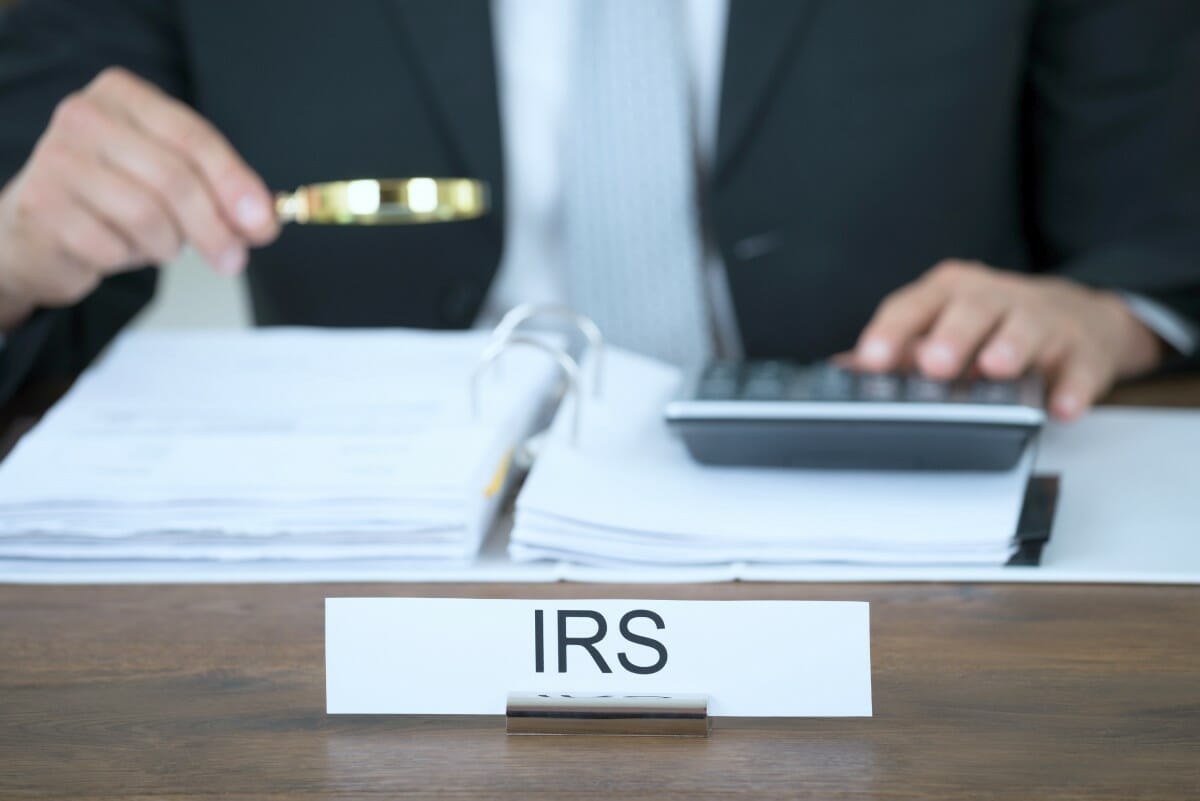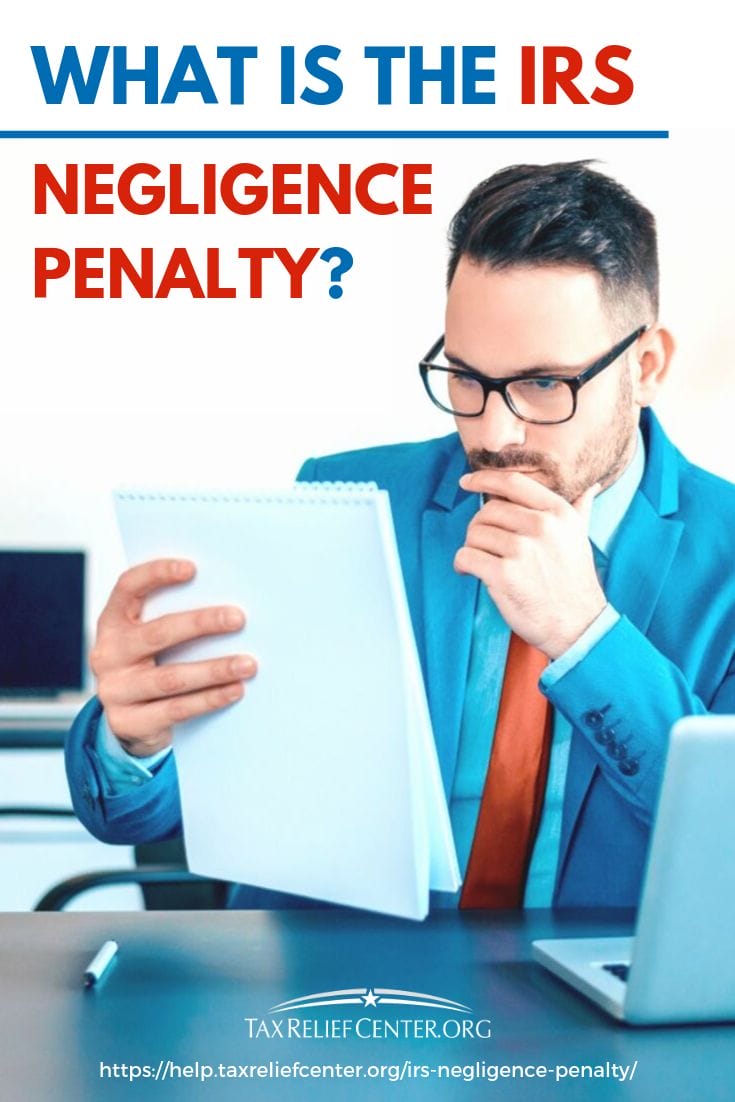Seeking clarity on the IRS negligence penalty? This article serves as a guide to protect you and your business.
RELATED: Tax Penalty For Underpayment [2019 Edition]
In this article:
- What Is an IRS Negligence Penalty?
- How Much Is an IRS Negligence Penalty Amount?
- What Is the Difference Between Negligence and Substantial Understatement?
- What Reasons Can I Use for IRS Negligence Penalty Reasonable Cause?
- Fraud Vs Negligence: What’s the Difference?
- How to Avoid an IRS Negligence Penalty
- When Is the Best Time to Fight an IRS Negligence Penalty?
- Who Do I Ask for Help About an IRS Negligence Penalty?
- Is There an IRS Negligence Abatement Program for Penalties?
Your Guide on IRS Negligence Penalty Definition and Penalties
1. What Is an IRS Negligence Penalty?
An IRS negligence penalty happens when the IRS finds inaccuracies in a return and heaves a penalty on the taxpayer. The bureau detects these inaccuracies by checking a taxpayer’s deductions or failure to report income.
Tax reporting errors crop up from time to time. The IRS elevates an error once it sees the taxpayer failed to make any reasonable attempt to follow the rules and regulations.
The IRS will also impose penalties once they determine the taxpayer displayed careless, willful, and reckless disregard of the law. Taxpayers should be mindful about existing rules and regulations and make sure they follow these to the letter to avoid penalties.
2. How Much Is an IRS Negligence Penalty Amount?
The IRS charges a negligence penalty of the amount a taxpayer underpays. For example, if someone fails to report an income of $5,000 from part-time work in their returns, the IRS will charge $1,000 as a negligence penalty.
A taxpayer usually receives information on the penalty amount from an IRS collection notice or letter.
3. What Is the Difference Between Negligence and Substantial Understatement?
The IRS raises the level of a case from negligence to substantial understatement if the underpaid amount reaches:
- 10% of the total tax amount one should have paid for the year
- More than $5,000 for individuals and $10,000 for corporations
4. What Reasons Can I Use for IRS Negligence Penalty Reasonable Cause?
The IRS will consider overturning a negligence penalty if the taxpayer acted in good faith and with caution, or if something happened outside of the taxpayer’s control that prevented them from following the rules.
Agents from the IRS will take into account the following situations and see if they truly affected a taxpayer’s ability to comply:
- Sickness, death, forced absence
- Natural disasters or fires
- Issues acquiring records
- Relying on bad advice or authority
- Lack of knowledge of policies
- The advice came from a member of the IRS
- Dependence on the services of a tax specialist
- The taxpayer’s locale is a disaster area
- The taxpayer is suffering economic hardship
- The taxpayer made a one-time typographical error in a return
RELATED: IRS Penalty Calculator: Breaking Down Your IRS Late Fees
5. Fraud Vs Negligence: What’s the Difference?

The IRS categorizes one error as a case of negligence most of the time. It’s different when the IRS detects signs a particular taxpayer is intentionally avoiding paying the correct amount of tax.
These behaviors include:
- Failing to disclose all sources of income
- Faking documents
- Keeping two accounting books or ledgers
- Passing off personal spending as business expenses
- Using a fake Social Security Number
- Claiming a dependent falsely
- Failing to report the right amount of income
6. How to Avoid an IRS Negligence Penalty
A taxpayer can avoid an IRS negligence penalty if they stick to the following habits:
- Keeping Adequate Records to Prove Deductions: A taxpayer who keeps records to support every deduction they claim avoids any penalties or issues with the IRS.
- Depending on the Counsel of a Tax Specialist: The IRS and the tax courts give taxpayers a degree of leniency for inaccuracies in reporting if they show they followed the advice of a tax specialist.
- Avoid Schemes That Create Artificial Loss of Profit: Taxpayers must avoid participating in any modus operandi involving the creation of an artificial loss of profit when filing returns, like CARD schemes, to avoid trouble with the IRS.
- Keeping in Mind That Prior Compliance with the Law Does Not Guarantee Freedom from Penalties: Tax courts and the IRS don’t consider prior good behavior of tax payments a reason to provide a taxpayer some relief for an inaccuracy. A taxpayer must strive to account for the accuracy of the information during tax income preparation for their returns every time they file.
7. When Is the Best Time to Fight an IRS Negligence Penalty?
A taxpayer’s best chances to fight a negligence penalty occurs when the IRS announces its intention to impose a negligence penalty and just before the federal bureau assesses the return.
For example, when the IRS sends a taxpayer a CPS 2000 notice, the perfect time to dispute the penalty is through an official reply.
This goes the same for tax audits. You can ask for a penalty non-assertion with the auditor from the IRS.
8. Who Do I Ask for Help About an IRS Negligence Penalty?
When a taxpayer wants to fight an IRS negligence penalty, they can approach the IRS Office of Appeals for reconsideration. The taxpayer, of course, benefits if they seek advice from a tax specialist prior to this move.
Should the solution within the IRS fail, a taxpayer can seek counsel from a tax advocate. The services of a tax lawyer become necessary if the negligence penalty case moves up to a tax court.
9. Is There an IRS Negligence Abatement Program for Penalties?
No, the IRS does not offer penalty relief for negligence penalties. What the IRS does offer is penalty relief for first-time offenses of:
- Failure to file a return
- Failure to pay when taxes are due
- Failure to pay certain taxes
- Some penalties as allowed by the law
If you or anyone you know wants to find out about penalty abatement or tax payment programs within the Internal Revenue Service, your best source of counsel would be a tax advocate or a tax specialist.
An IRS negligence penalty will remove a chunk of a taxpayer’s finances especially if the understated tax amounts to thousands of dollars. Despite a taxpayer’s best efforts, mistakes in reporting can and will happen, so reading up on the IRS negligence penalty through articles like this from the Tax Relief Center will help when that time comes.
Have you ever received a letter from the IRS about imposing an IRS negligence penalty? What course of action did you take and what was the outcome? Share your stories in the comments section below.
If you owe back taxes, visit taxreliefcenter.org for more information on tax relief options.
Up Next:
- Failure To File Penalty: 9 Facts You Should Know
- The IRS Appeals Process For These 3 Common Cases
- How Do I Get An IRS Tax Resolution?


